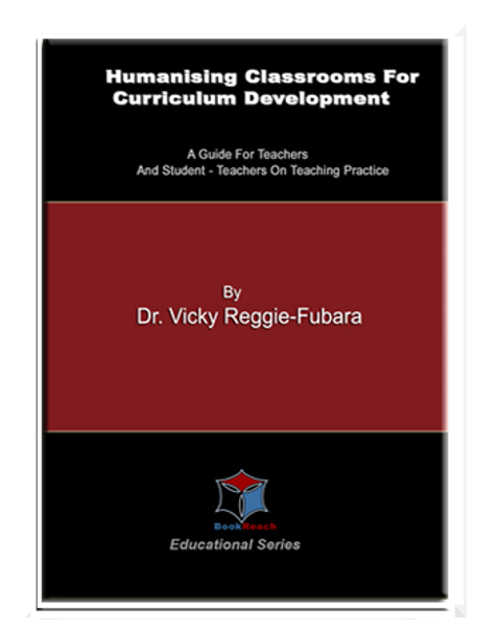
You may know your subject and yet a bad teacher if you do not know how to maintain your audience's attention.
A good teacher knows to comport his/her traits to suit the audience or he/she would be talking to the walls.
Humanising classroom is for teachers who want to make impact on their audience.
Being a teacher is winning body and souls and securing full attention by humanising the classroom lively.
This book is also the product of a selection of courses taken and seminars presented by the author at Sussex University, Falmer Brighton, from 1970 to 1981. They formed part of a course component referred to as "Teacher as Counsellor". Some have been however modified in the light of present educational changes.
The central theme is Humanising Classrooms for developing and developed economics.
Part one deals with the evolution of both political and educational development in Nigeria within a selected period. It puts forward reasons why our classrooms need to be humanised.
Part two deals with the way an understanding of group dynamics can make teachers understand students better.
Part three highlights the role of drama as a teaching methodology as well as a mode by which teachers can deal with complex problems in extremely concrete ways. Further, drama is also seen as a good tool for understanding group dynamics in educational settings.
Part four deals with the way and manner counselling skills can be integrated into the role of the teacher for better understanding of pupils either as individuals or in groups.
Part five explores the relevance of Eric Bernes? thesis that the bulk of time in serious social life is taken up with playing games. This is discussed to highlight its relevance in understanding personal relationships within our schools for meaningful teaching.
Initially these papers were used for presenting seminars to Commonwealth student groups as well as students from England. Their collation should therefore be beneficial to students at Universities and Colleges of Education in England as well as the Commonwealth. They will also be useful to educators and parents, especially the aspects on child rearing for autonomy.
This book can also form a base for a course on Humanising Our Classrooms as well as a course on Curriculum Development for Teachers. Curriculum Development as we know, can be approached either as a team work by designers or by individual teachers in their classroom work. It is this last category that this book addresses, because in order to succeed in anything we do in class we must understand relationships.

In 1961, Dr. Vicky Reggie-Fubara had her Cambridge School Certificate in (8 subjects), awarded by the University of Cambridge, United Kingdom with distinctions in English Literature, History and Bible Knowledge. She got married shortly after this on the 5th of July 1962 as was required by Tradition for the Girl Child.
After settling down to married life, she enrolled locally at the College of Education, Port Harcourt, Nigeria for her early teachers' training and graduated with distinctions. In 1976, she taught History and English at Stella Maris College, Port Harcourt, Nigeria. Early 1978, she went to the Moray House College of Education, Edinburgh, Scotland where she did an Advanced Diploma in Educational Management and Administration. She later left Scotland at the end of her course for University of Sussex, Falmar, Brighton, England where she took her Bachelor's degree in Guidance and Counseling. She immediately went to her graduate work in the same University and graduated in 1981 with a Masters Degree in Curriculum Studies. Later she did a Ph.D in Curriculum Studies at the University College, Carddiff Wales, United Kingdom.
Currently, she lectures at the University of Port Harcourt, Department of Curriculum Studies and Educational Technology, Port Harcourt, Nigeria, as a Senior lecturer. Before joining the University, she served at the Ministry of Education, Port Harcourt, Nigeria, as a Senior Inspector of Education in-charge of Curriculum Development Unit.
She has had immeasurable experiences as an Educator both in Nigeria, United Kingdom and in fact the Diaspora. She has published several articles in learned journals as well as co-authored books.
Her Other Titles Include-